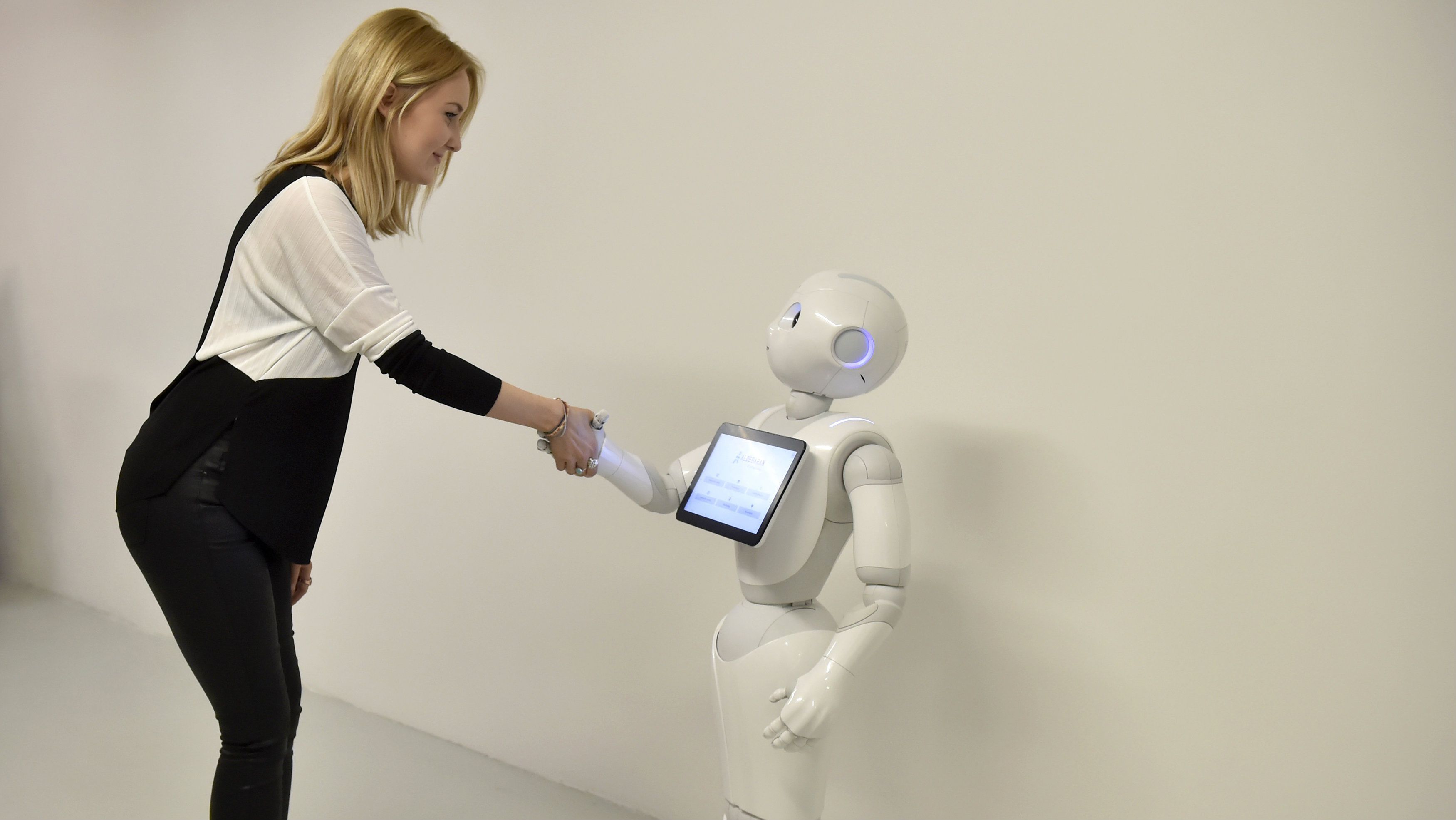
Though Cheok acknowledges that sex robots could fulfill sexist male sexual fantasies, he believes robot-human marriages will have an overwhelmingly positive effect on society. “People assume that everyone can get married, have sex, fall in love. But actually many don’t,” he says. And even those who do might be in search of a different option. “A lot of human marriages are very unhappy,” Cheok says. “Compared to a bad marriage, a robot will be better than a human.”
Though various sex robots are on the market, there are none that come close to resembling a human sexual partner—and there’s certainly nothing like the type of humanoid robot capable of replicating a loving relationship. However, Cheok believes the greatest technological difficulty in creating love robots is not a mechanical challenge, but a matter of developing the software necessary to build a robot that understands human conversation skillfully enough for the job.
Once that problem has been addressed, Cheok sees no problem with romances between man and machine. “If a robot looks like it loves you, and you feel it loves you, then you’re essentially going to feel like it’s almost human love,” he says. Cheok points out that in Japan and South Korea, there are already cases of humans falling in love with computer characters. Cheok also compares robot love to human emotions for other species, such as pet cats. “We already have very high empathy for non-human creatures. That’s why I think once we have robots that act human, act emotional, or look human, it’s going to be a small jump for us to feel empathy towards robots,” he says.
Continue reading “Experts predict human-robot marriage will be legal by 2050” »
















